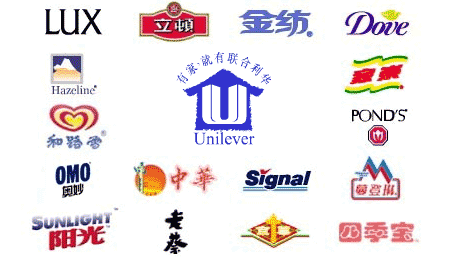Venous cannula is also a deep venous puncture catheter. The method is to select the appropriate puncture site and insert the needle under the skin, and insert the needle with negative pressure until the dark red blood is absorbed, indicating that the needle has entered the vein, and the guide wire is inserted. Withdraw the puncture needle to leave the guide wire in the blood vessel, and then insert the venous catheter that needs to be indwelled along the guide wire, then exit the guide wire, inject diluted heparin saline and fix the catheter, the deep venous catheterization is completed. The veins for puncture and catheterization are usually selected clinically, including the subclavian vein, internal jugular vein, and femoral vein. After the puncture catheter is indwelled, attention must be paid to the care of the puncture site to avoid infection with thrombus or catheter falling off. venous cannulation,best veins for cannulation,venous cannulation set,venous cannulation technique Yong Yue Medical Technology(Kunshan) Co.,Ltd , https://www.yonyuepcrtube.com In the past decade, Unilever, which has been relatively "conservative" in its acquisitions, may once again resort to a generous offer to acquire Colgate-Palmolive Limited ("Colgate") for $55 billion.
In the past decade, Unilever, which has been relatively "conservative" in its acquisitions, may once again resort to a generous offer to acquire Colgate-Palmolive Limited ("Colgate") for $55 billion.
The news was revealed by Nicolas Sochovsky, an analyst at UniCredit. In a recent investor report, Unilever is likely to exceed 50% of Colgate’s current market value. , which is about $ 55 billion acquisition of the current, Colgate's market value is 36.8 billion US dollars.
Yesterday, Vice President of Unilever Greater China Zeng Xiwen told the “First Financial and Financial Daily†that he did not receive relevant acquisition information at present. Unilever sold the toothpaste business in North America more than three years ago. The current situation is different from that at that time. Whether or not Colgate will be acquired is also uncertain. But if the acquisition is successful, it is definitely a good thing for Unilever. The purchase price may be twice that of its current sales.
The above-mentioned analyst Sokowski also believes that for Unilever, M&A transactions are one of the quickest ways for the company to double its revenue. He pointed out that the acquisition of Colgate "will accelerate the transition of Unilever's product portfolio to personal care products, enhance Unilever's strength in emerging markets, give the company a scale effect in the US market," and increase the company's Profit rate.
Unilever’s recent large-scale acquisition was in 2000, spending US$24 billion on the acquisition of “Best Foodâ€, a large American food manufacturer known for its production of instant soup. Since then, compared with competitors P&G, Unilever has been relatively "cool" in its acquisitions in recent years. P & G launched its largest acquisition in history in 2006 and acquired Gillette for $ 57 billion. Rapidly widening the gap with other competitors, by 2009, P & G's annual global sales have reached more than 790 billion US dollars.
Until 2009, Paul Polman, the new CEO interested in mergers and acquisitions, took over, and Unilever invested 3.9 billion euros (about 5.3 billion U.S. dollars) in 18 months for 5 piles. M & A transactions, including the acquisition of American personal care products manufacturer Alberto Culver Co (ACV) and the United States food manufacturer Sara Lee Corp (SLE)'s European bath and detergent business.
However, Zeng Xiwen did not agree with Sokolowsky's view that Unilever is shifting its business focus from the food sector to the faster-growing medical and personal care products sector. He said that Unilever has always been a food and daily chemical industry.
It is understood that in the Chinese market, Procter & Gamble's Crest toothpaste, Colgate's Colgate toothpaste and Unilever's Chinese toothpaste have been among the top three brands in terms of a single brand. These three brands account for more than 50% of the domestic toothpaste market. Zeng Xiwen said Unilever even stopped its own toothpaste brand Jienuo in China and tried its best to build Chinese toothpaste.
For the acquisition of funds from Colgate, Sokovsky estimates that Unilever may raise 10 billion euros (about US$ 13.6 billion) in funds through the sale of shares, which will lead to the company’s gearing ratio after the transaction is completed. In the first year, it reached 3.7%.
However, Zeng Xiwen believes that if there is a possibility of acquisition, funds are not a problem. The problem lies in whether people are willing to sell or not. Some companies, such as Kao, are privately controlled and are not willing to sell.
Industry insiders told reporters that Unilever’s acquisition of Colgate had passed several rounds in 10 years and finally it was over. Sokowski pointed out that based on Colgate’s current share price and its EBITDA (ie, profit before interest, taxes, depreciation and amortization), Colgate’s earnings multiple is less than 9 times, which is the lowest level in 10 years. .
A securities analyst believes that for Colgate, because it is a single brand operation, there is a relatively high risk. In addition, most of Colgate’s revenue comes from outside the United States, so its performance is highly susceptible to exchange rate changes.
On the other hand, Zeng Xiwen believes that acquisitions between big companies like Unilever and Colgate may be difficult to acquire even if they agree to each other, because they still need to apply for approval from the EU and the US government. However, if the acquisition is successful, Colgate can create strong complements with Unilever’s existing toothpaste brands in terms of research strength, production and sales.
Unilever or $55 billion acquisition of Colgate